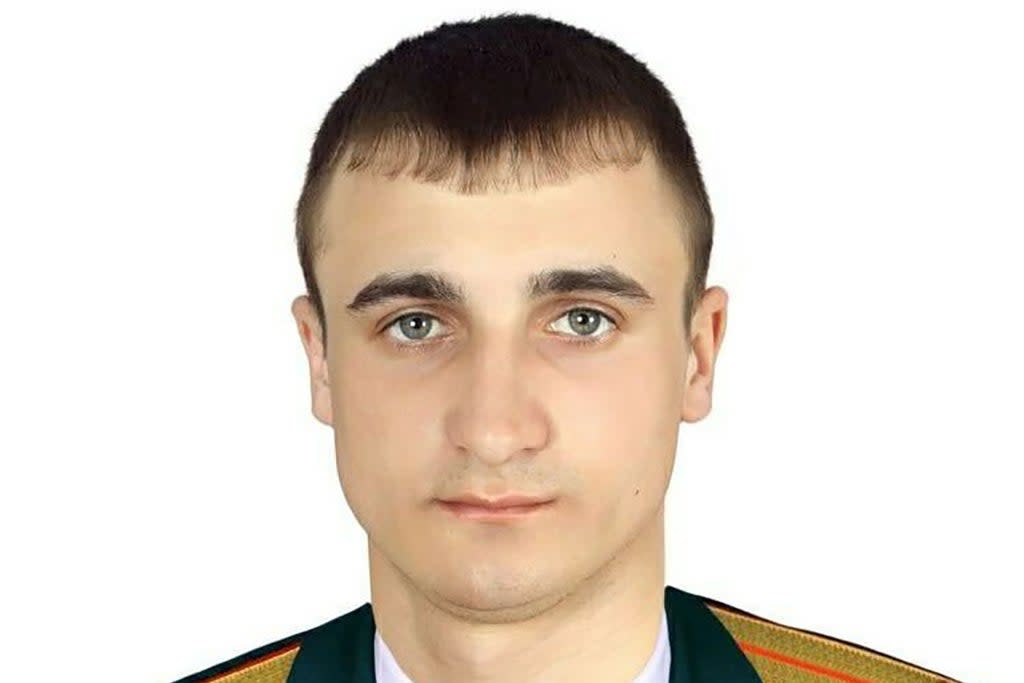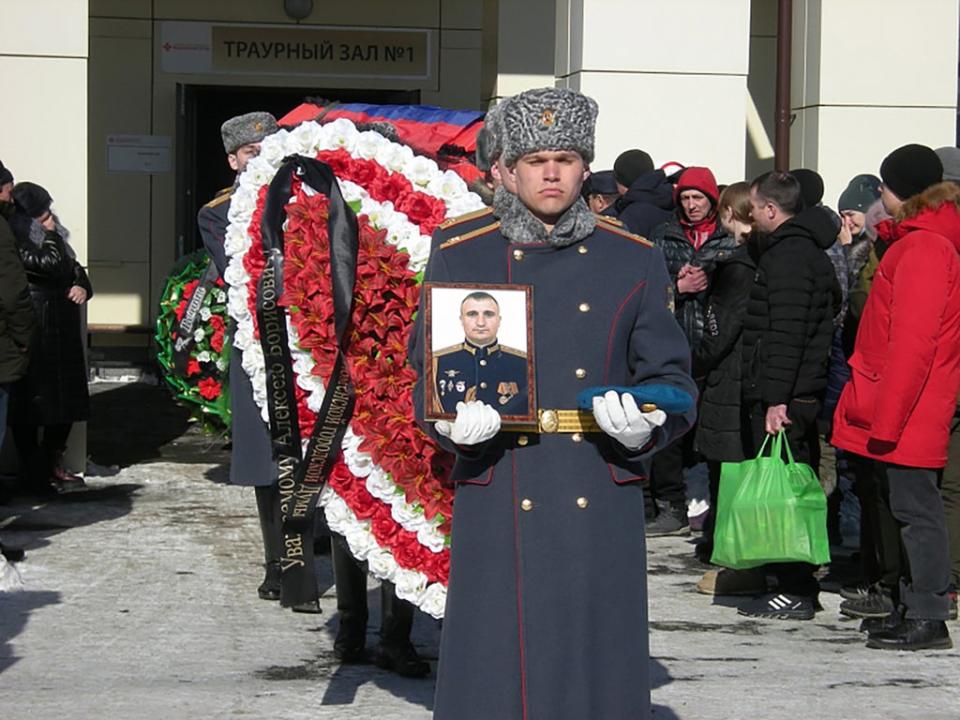Ukraine war: Russia loses its first GRU military intelligence spy as toll worsens for Putin’s troops

Russia has admitted to losing its first GRU military intelligence spy in the war in Ukraine.
And two elite paratrooper intelligence officers were also revealed on Monday to have been killed as the toll worsens for Vladimir Putin’s forces.
Captain Alexey Glushchak, 31, from Tyumen in Siberia, died in the carnage in Ukrainian port Mariupol, but the Russians have given no details of how the GRU agent was killed.
“Due to the strict secrecy of the military operation, the circumstances of the death of the Tyumen hero are not disclosed,” said a statement.
The GRU was behind the poisoning with Novichok of its former spy Sergei Skripal - who had defected to Britain - in Salisbury in 2018.
Pictures emerged of father-of-one Glushchak’s funeral in Russia, where he was buried with full military honours from a guard of honour.
On the day the military intelligence officer died he had spoken to both his wife and mother in Russia, it was revealed.
He called to congratulate them on International Women’s Day but on the same day in the evening they learned he had been killed.
He will be posthumously decorated.
Another officer to die was Georgy Dudorov, deputy commander of the reconnaissance company for military-political work of the 137th regiment of the 106th Tula Guards Airborne Division.

A report said: “A column from his company came under artillery attack from Ukrainian nationalist detachments, and, being face to face with danger, he honourably fulfilled his military duty to the Fatherland, receiving mortal wounds.”
Another paratrooper intelligence officer killed was Aleksey Aleshko, a graduate of the prestigious Ryazan Guards Higher Airborne School.
The senior lieutenant died saving the lives of “hundreds of lives of his comrades”, said Tula governor Alexey Dyumin, a former trusted bodyguard to Putin promoted to a political career.
The deaths coincide with the first expressions of anger and dismay on the toll of coffins now returning to Russia, even though those officially acknowledged as having fallen in Ukraine are seen as a small fraction of the total number which best estimates suggest now run into ‘many thousands’.
Moscow has given no up-to-date total of those killed in the war, and named only a handful of the fallen, which include several generals.
Many funerals currently visible in the media are for soldiers slain at the end of February.
Russia is taking two weeks or more to transport their bodies back to relatives, many of whom live in the Russian Far East, thousands of miles from the bloody war zone.
The pain is evident in an increasing number of hostile and anguished social media posts.
“When will this stop, we are seeing coffins almost daily?” said one.
“Why did we need to send our boys into this hell?” asked another.
A funeral was also held for Corporal Danil Novolodsky, 24, a senior gunner on an air assault artillery battery.
He was awarded the Order of Courage under a decree signed by the Russian president.
He was from Ulan-Ude, capital of the republic of Buryatia in Siberia, a mainly Buddhist region, which has suffered a disproportionate number of fatalities among Russian soldiers killed in Ukraine.
Ahead of the invasion, tens of thousands of troops were sent west on the Trans-Siberian Railway to fight in the coming war.












Another funeral from the same region was held for Vladimir Plekhanov, 24, an orphan raised by a living foster family.
Sagyndyk Kudaibergenov, 22, from Tyumen, like the GRU agent, was buried with military honours, say reports.
He was killed in mortar fire while deploying communications equipment across a river. He died on 26 February but his funeral was only on 11 March.

 Yahoo News
Yahoo News 
